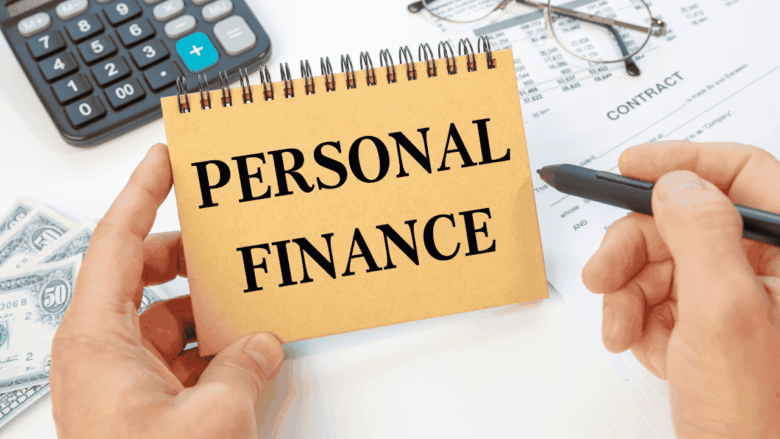Money management is a crucial life skill, yet it’s rarely taught in school. Personal finance can be challenging for beginners, but with the right knowledge and practice, anyone can manage money wisely. Personal finance encompasses earning, saving, budgeting, investing, and making smart financial decisions. The sooner you master these skills, the better equipped you’ll be to handle unexpected expenses, reduce financial stress, and achieve your long-term goals. Mastering these fundamentals lays a solid foundation for building wealth, protecting assets, and living confidently. Beginners should learn the essential principles of personal finance, including practical advice, proven strategies, and easy-to-apply knowledge to improve their financial future.
Understand the Importance of Budgeting
Personal finance begins with a budget, and it’s essential for beginners. A budget allows you to track your income, expenses, and savings, giving you insight into where your money is going. Without a budget, it’s easy to overspend and fall into debt. Create a simple budget by mapping out your income, fixed expenses, variable expenses, and discretionary spending limits. Financial experts recommend allocating 50% of your income to basic necessities, 30% to aspirations, and 20% to savings and debt reduction. A well-planned budget can help you stay within your means, avoid financial stress, and save for the future.
Build an Emergency Fund
An emergency fund can protect you from unexpected expenses like medical bills, car repairs, and job loss. An emergency fund can make the difference between staying financially stable and avoiding debt, but beginners often overlook it. Most financial experts recommend saving three to six months’ worth of living expenses in a separate, accessible savings account. Even if you start small by setting aside a percentage of each paycheck, consistency is crucial. Over time, your emergency fund can provide peace of mind and help you avoid using credit cards or taking out loans during stressful times.
Learn to Manage Debt
Another important topic in personal finance is debt management. Credit cards can easily become a financial burden, while student loans and mortgages can be investments in your future. Beginners should distinguish between good and bad debt and develop a repayment plan. Many people use the snowball or avalanche method to pay off their debts, starting with the smallest. Responsible debt management can improve your credit score, free up money for savings, and reduce financial stress.
Credit Scores and Personal Finance
Your three-digit credit score demonstrates your creditworthiness to lenders, tenants, and potential employers. Understanding your credit score is essential for beginners, as a high score can help them qualify for lower interest rates, better financial products, and more opportunities. Your payment history, credit utilization, the length of your credit history, and your credit category influence your credit ratings. To improve your credit score, make payments on time, keep your credit card balances low, and avoid strict credit checks. Regularly checking your credit report helps you identify issues that could lower your credit score.
Saving and Investing for the Future
Saving and investing are fundamental wealth-building principles that beginners should learn early on. Saving is for short-term goals or emergencies, while investing in stocks, bonds, or retirement accounts can make your money grow. By understanding how compound interest works—both principal and interest—you’ll understand why it’s so important to start early. Small, consistent investments can add up significantly over time. Start by developing a saving habit, then explore low-risk investments like index funds, 401(k) retirement funds, or IRAs. Persistence, patience, and long-term thinking are essential.
Understanding Financial Protection and Insurance
Beginners often overlook the crucial role of insurance in ensuring financial security. Health, auto, life, and renters’ or homeowners insurance can protect you from unexpected financial losses and prevent you from running out of money. Without insurance, a single accident or illness can ruin years of financial success. Beginners may not need every type of insurance, but they should assess their needs. Insurance can protect you against financial loss and help you build wealth.
Practicing Smart Spending Habits
Smart spending means spending consciously, not eliminating all your expenses. Beginners should distinguish between needs and wants, avoid impulse buys, and consider the value before making a purchase. Comparing purchases, waiting 24 hours for non-essential purchases, and utilizing cashback or rewards programs can save you significant money in the long run. Smart spending habits keep you on track and allow you to save and invest, which creates financial security.
Conclusion
The goal of the basic principles of personal finance is to develop habits that build financial confidence, independence, and long-term stability. Budgeting, saving, debt management, credit awareness, and goal setting all form a solid foundation. Beginners may find this challenging, but perseverance and dedication make it easier. The lifelong benefits of personal finance increase the earlier you get started. Mastering these basic principles can protect you from financial hardship and prepare you for life-changing opportunities. Personal finance is about controlling your money, not letting it control you. With the right mindset, you can achieve financial freedom.
FAQs
1. Where do I start with personal finance education?
First, create a simple budget to track your income and expenses and see where your money is going.
2. How much should I save for emergencies?
Most experts agree that an emergency savings account should cover three to six months of living expenses.
3. Can a beginner invest small amounts?
Some investment services offer the option to start with as little as $50 per month, which can grow significantly through compound interest.
4. Credit Score for Beginners—How Important Is It?
Your credit score can affect your ability to get a loan, rent a home, and earn a good interest rate.
5. Should I pay off my debt first or save first?
It’s best to pay off high-interest debt first and save smaller amounts over time.




